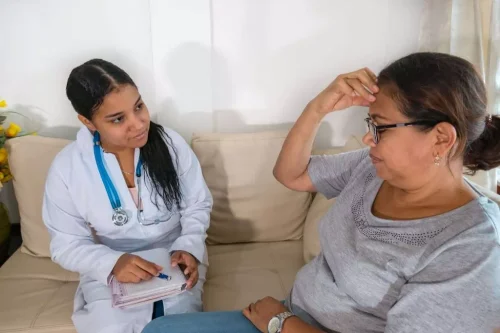
Without telling Tim, she goes out to expensive lunches and dinners with her friends, makes several large purchases, and loses a healthy chunk of money at the casino. Individuals vary in how they react to those distinct moments of tension aroused by such conflict. Sometimes, you just need a little nudge (and support) from someone else to stop ruminating on a problem and take action.
Overcome the Fear of Conflict With Therapy
After all, we have suppressed our emotions, possibly anger, some frustration, our thoughts, and maybe even our beliefs. Our external conflict has been resolved but, unfortunately, only to be replaced by our own internal conflict. A simple verbal confrontation over sandwiches with a barista won't kill you. Serial conflict-avoiders will have a series of unconscious manoeuvres to get out of fight situations. But if things start to look like conflict, your immediate reaction is to either get out of the situation or somehow change it so that it's more peaceful, rather than seeing the fight through.
- It can significantly affect your quality of life with the condition.
- If you've tended toward avoidance coping most of your life or at least are in the habit of using it, it can be hard to know how to stop.
- If you are out of touch with your feelings or so stressed that you can only pay attention to a limited number of emotions, you won’t be able to understand your own needs.
- You can do this by using Helpguide’s free Emotional Intelligence Toolkit.
- These stress hormones change the way the body and mind operate.
Treatment options for PTSD avoidance
The more you challenge yourself to face rather than avoid conflict, the greater potential for your personal growth. Your attempts will be respected by even your adversaries when how to deal with someone who avoids conflict you open up the dialogue of alternative thinking. Un-likeminded thinking, on the other hand, opens up new windows of clearer vision and new opportunities for understanding.

More in Communication

If you tend to attach in your relationships by avoiding confrontation and connection, or are prone to secrets, you may have some avoidant tendencies you learned in childhood. Lastly, when you avoid conflict at all costs, it can also make it harder to create and maintain boundaries. When someone violates your boundaries, it might be necessary to reinforce those boundaries by confronting the person. Sometimes, a little self-reflection can provide significant insight into the core issues in your relationship and even into some of your most fundamental fears in life. In a committed romantic relationship, there are often challenges and conflicts you and your partner will face.
Your Link to Professional Counsellors
Body Language and Nonverbal Communication
Cognitive Behavioral Therapy (CBT)

Featured Articles
- Everyone will have triggers, but they do not have to identify who we are or how we will respond to conflict.
- Although avoidance is a common feature of PTSD, it’s also present in a lot of other anxiety disorders, including panic disorder, obsessive-compulsive disorder (OCD), phobias, and more.
- What experiences from your past may have led to your conflict avoidance?
